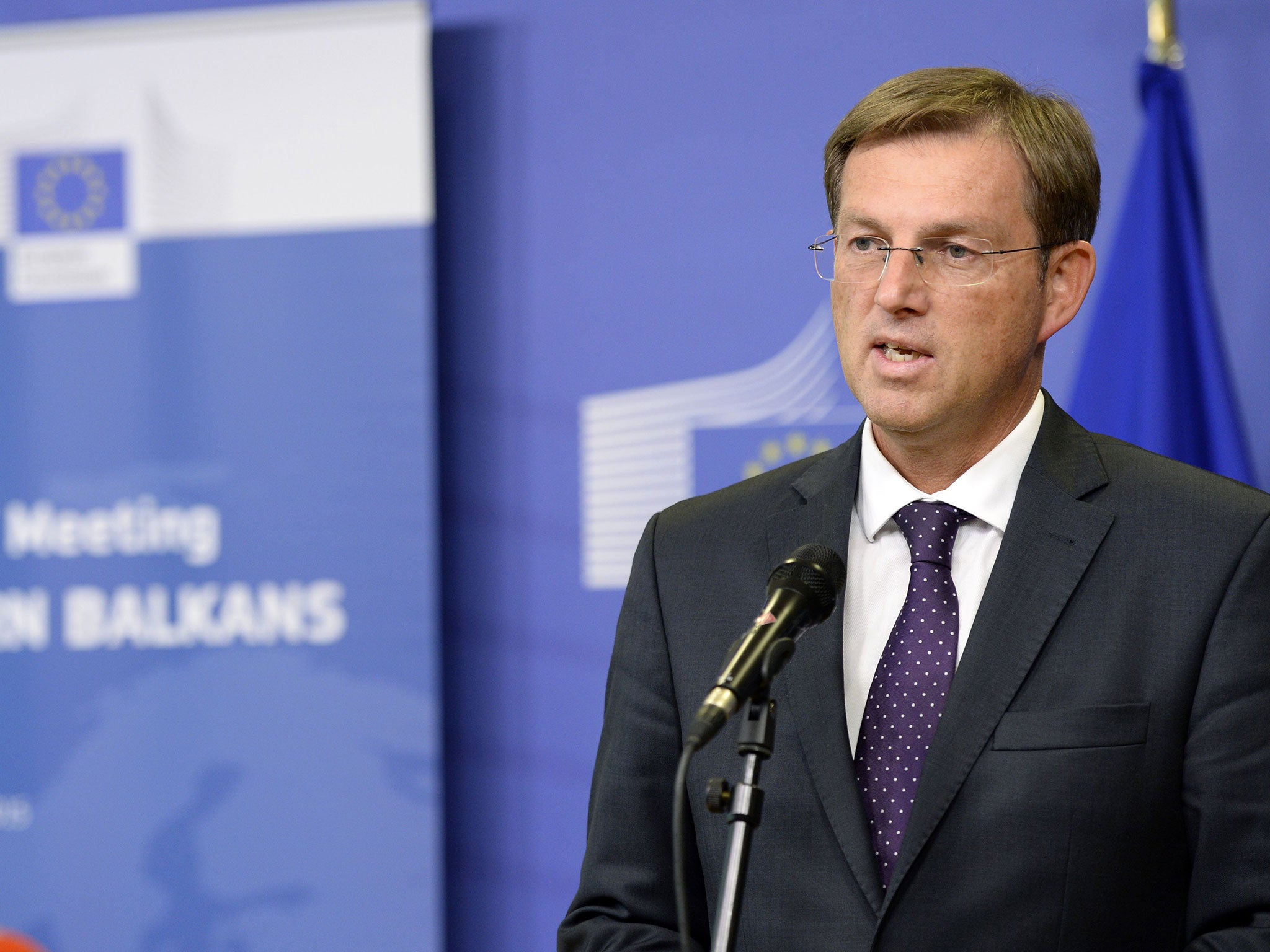Refugee crisis: Apocalyptic message overshadows talks as EU leaders struggle to find agreement
Slovenian Prime Minister Miro Cerar said: 'If we don’t deliver concrete action, I believe Europe will start falling apart'

Your support helps us to tell the story
From reproductive rights to climate change to Big Tech, The Independent is on the ground when the story is developing. Whether it's investigating the financials of Elon Musk's pro-Trump PAC or producing our latest documentary, 'The A Word', which shines a light on the American women fighting for reproductive rights, we know how important it is to parse out the facts from the messaging.
At such a critical moment in US history, we need reporters on the ground. Your donation allows us to keep sending journalists to speak to both sides of the story.
The Independent is trusted by Americans across the entire political spectrum. And unlike many other quality news outlets, we choose not to lock Americans out of our reporting and analysis with paywalls. We believe quality journalism should be available to everyone, paid for by those who can afford it.
Your support makes all the difference.European leaders meeting for emergency talks in Brussels have lashed out at each other over how to deal with this year’s influx of refugees, amid warnings that the continued uncertainty could threaten the European Union itself.
The hastily convened gathering, of 11 leaders, was called to deal with the mass of refugees taking the Balkan route from the eastern Mediterranean to richer EU countries: with winter approaching and many countries closing their borders, Europe risks adding a humanitarian emergency to its crises. However, the Slovenian Prime Minister, Miro Cerar, warned about apocalyptic consequences if Europe failed to resolve the crisis. “If we don’t deliver concrete action, I believe Europe will start falling apart,” he said.
The leaders were meeting nine days after Hungary sealed its southern border with Croatia, pushing thousands of refugees into Slovenia. In the past week, more than 62,000 migrants have arrived in Slovenia. Croatia, said 11,500 people crossed into the country on Saturday. An estimated 250,000 refugees have passed through the Balkans since mid-September.
The summit gathered the leaders of eight EU countries (Germany, Hungary, Austria, Bulgaria, Croatia, Greece, Romania and Slovenia) and three from outside the bloc (Macedonia, Albania and Serbia). While they agreed to co-operate more in managing the flow of refugees from the Middle East to Europe, they failed to approve immediate, concrete measures to help to resolve the crisis.
The German Chancellor, Angela Merkel, said the EU should ensure “that the people who are wandering about and living under unbearable conditions receive help”. She added that all the countries bordering the refugee route through the Balkans were all signatories to the Geneva Convention on refugees.
The summit addressed practical issues including a proposed joint distribution of tasks along the Balkan route which could be immediately implemented. The European Commission President, Jean-Claude Juncker, presented a proposed 16-point plan containing emergency measures, as well as increasing border surveillance, properly registering refugees and stopping bus and train transfers to the next border without the consent of the neighbouring country.
However, Croatia’s Prime Minister, Zoran Milanovic, called Mr Juncker’s plan “frivolous and unrealistic”. He also demanded that Greece should control its maritime border with Turkey. The Greek Prime Minister, Alexis Tsipras, said having a summit on the refugee crisis would be of little use if Turkey were not invited.
Bulgaria, Serbia and Romania said they would close their borders if countries shut the door on refugees, warning they would not let the Balkans become a “buffer zone” for stranded refugees. Slovenia asked the EU for €140m (£100m), plus police back-up and logistical support, and says that if no help emerges, it may have to build its own barrier along its border with Croatia.
Join our commenting forum
Join thought-provoking conversations, follow other Independent readers and see their replies
Comments